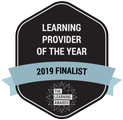
Student Counseling and Wellbeing Services
Mental health training for professionals working in Student Support Services.
The Association for Psychological Therapies (APT) is a leading provider of training for professionals working in mental health and related areas, and the following courses are of high relevance to Student Support Services. We bring the training to your own organization for a fixed all-inclusive fee, no matter where you are, whilst some of courses are also available for individuals to attend. All of the training is accredited by APT and delegates receive the relevant level of APT-Accreditation depending on which course(s) they attend.
The below courses are of high relevance to professionals in Student Support Services.

The DICES® System for Risk Assessment & Management.
Available in 3-day and 2-day versions.
A cogent system that actually facilitates clinical work, this is one of our most renowned courses. Thousands of professionals have already attended it.
With the starting point that excellent risk management involves excellent clinical practice, The DICES® System for Risk Assessment and Management shows what is necessary to properly assess and manage risk easily, reliably and to the benefit of all, and this accounts for its staggering popularity.
Part one covers the nature and theory of risk assessment and management: why we do it and what we aim to achieve by it. Part two covers risk assessment specifically: if you don't notice the risk there is no chance you will manage it correctly. Part three covers risk management: there is no virtue in spotting a risk if you are not able to manage it. The end result is that not only do you know about risk assessment and management, you also have the ability and the equipment to do so reliably and well.

Suicide-Risk Assessment and Management.
A 2-day course.
Thousands of people take their own lives every year, and we don't respond to it especially well: around 90% of people who end their own lives have seen their doctors in the previous year. We need to be able to spot those who are at risk, to manage the risk, and intervene to help people build a worthwhile life long-term.
This 2-day course focuses on the first two of those three factors, and is based on APT's acclaimed DICES programme for risk assessment and management. It focuses purely on the risk of suicide, and does so in a client-focused way, designed to help the client from the very first moment of contact. It covers:
1. Risk Assessment
2. Risk Management
3. How to verify and demonstrate you have assessed and managed risk
The course aims also to help us become relaxed and optimistic about seeing suicidal people, because we will know what to do: we will notice them, we will be able to manage their suicidality, we will be able to plan effective treatment.

CBT Essentials.
A 3-day course.
A favorite introduction to this powerful, evidence-based technique.
Now in its latest form this course has introduced Cognitive Behavioral Therapy to thousands of people ever since 1983. It addresses Cognitive Behavioral Therapy in a way that you can use after the course. It covers: the history and meaning of Cognitive Behavioral Therapy, conceptualising cases in CBT terms, the format of a standard CBT session, and the most important CBT techniques. All in a way that applies it constantly to practical examples.

ACT Essentials (Acceptance & Commitment Therapy).
A 3-day course.
'Once in a while there is a unique contribution to psychotherapy.'
Acceptance and Commitment Therapy (ACT) moves away from focusing too closely on ‘symptom reduction’ towards teaching how to live in a stable and rewarding way. So it teaches how to get in touch with your values, how to act in accordance with them, how to be aware of ‘the you that is always there’, how to see your passing thoughts and feelings for just that, how to accept thoughts and feelings you don’t like without over-struggling with them, and so how to live mainly in the present.

Teaching Mindfulness in Clinical Practice.
A 2-day course.
Mindfulness is a psychological intervention that we dream of: it works both for clients/patients and us, and its effectiveness is demonstrated not just by clinical studies but by the unusual number of people testifying to its benefit. Moreover it is a quick, simple concept with obvious validity and relevance. It fits with the thinking of those who maintain that "To live effectively and well cannot be a complicated thing, so any intervention to help people do so should not itself be complicated”.

SFT Essentials (Solution-Focused Therapy).
Also known as SFBT (Solution-Focused Brief Therapy).
A 3-day course.
An approach to problems that is fundamentally positive and comes as a breath of fresh air to professionals and clients alike.
Another of APT's top courses, this aims to introduce you to the principles of SFT / SFBT in a way that gives you a firm grasp of them and enables you to use them in a safe and helpful way. You should become at home with the approach which is often seen as a 'breath of fresh air' both to client and professional, looking for and finding effective solutions for problems, rather than being sucked further and further into the problem itself.

CFT Essentials (Compassion Focused Therapy).
A 3-day course.
An exposition on Compassion Focused Therapy, in a way that enables and encourages delegates to use it in their practice.
Although compassion focused therapy is delivered compassionately, its main focus is to encourage patients to be compassionate towards themselves. This is achieved by (a) specific techniques and approaches we cover on the course and (b) by educating patients about what happens in the brain so they realize that their emotions, behaviors, thoughts and fantasies are not their 'fault', and yet they can take certain actions to make things better for themselves (which we also cover). This is a course for people who do not necessarily want to be exclusively “a compassion focused therapist” but certainly DO want to know all about compassion focused therapy in order to build CFT ideas and techniques into their clinical repertoire. It therefore covers both the theory and the skills of CFT in a way they can be applied immediately.

Mindfulness-Based Cognitive Therapy (MBCT).
A 3-day course. (2-day version also available.)
This course concentrates much more on Mindfulness than it does on CBT. So it explains why Mindfulness meditation is likely to help recurrently depressed people, looks briefly at the published evidence that confirms that it can, and the NICE guidelines that commend it, but spends most of the time in experiential exercises and in discussing those exercises. There is a small amount of lecture input, but listening to lectures on Mindfulness is not a sensible pastime so the course focuses on understanding Mindfulness, acquiring the ability to practise Mindfulness meditation, and the ability to convey it to others.



